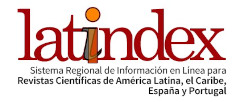THE INCOME TRANSFER PROGRAMS IN BRAZIL AND ITS RELATION TO IMPROVING THE POOR POPULATION QUALITY OF LIFE AND EXTREMELY POOR: a study on the Bolsa Família
Keywords:
Financial Assistance Program Family, Social programs, Direct income transfer, Quality of life, ConditionalitiesAbstract
This article is based on the discussion of the Financial Assistance Program Family, in order to demonstrate how the federal government is managing the scope of social programs and whether they have given any positive results for the country. For that, we made bibliographic surveys the authors have discussed the case, and also seek information in government records that deal with the subject. Thus, it may be noted that the results of the Financial Assistance Program Family, despite what some say, have shown very positive situations under the breaking aspect of the intergenerational cycle of poverty with the poor and extremely poor families, including giving them the opportunities for growth and material development and social inclusion, thus achieving improved quality of life and better conditions of survival, which are the focus of social programs.Downloads
Published
2016-10-22
How to Cite
Almeida, M. L. de, & Silva, J. L. G. da. (2016). THE INCOME TRANSFER PROGRAMS IN BRAZIL AND ITS RELATION TO IMPROVING THE POOR POPULATION QUALITY OF LIFE AND EXTREMELY POOR: a study on the Bolsa Família. Revista Brasileira De Gestão E Desenvolvimento Regional, 12(3). Retrieved from https://www.rbgdr.com.br/revista/index.php/rbgdr/article/view/2513
Issue
Section
Artigos
License
Authors who have their papers accepted and published in the Brazilian Journal of Regional Management and Development must agree to the copyright policy CC BY https://creativecommons.org/licenses/by/4.0/.
If the article is accepted for publication, the copyright is automatically assigned to the Brazilian Journal of Regional Management and Development.
















